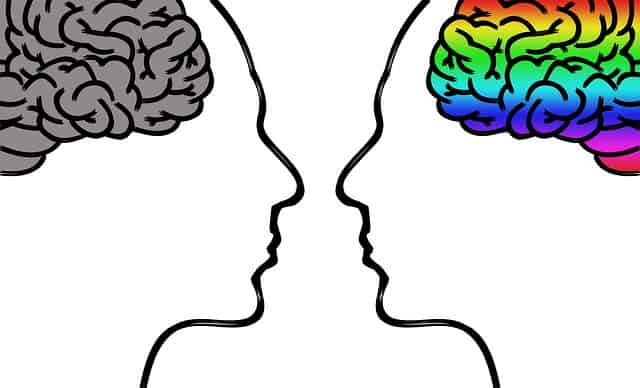Anxiety attacks are like a storm that can strike without warning. Anxiety attacks can affect anyone, regardless of age, race, or background. Sometimes anxiety attacks seem to come out of nowhere without any apparent trigger.
They can occur while you’re relaxed during the day or even while you’re asleep. Despite this, anxiety attacks are highly treatable. Anxiety disorders can be debilitating, but with the help of a mental health professional, you can learn to manage anxiety and live a full, happy life.
Learn About Anxiety
Understanding how anxiety affects the body as well as the mind can go a long way in your effort to prevent attacks. Read articles about anxiety and other psychological disorders that are related to it. Learn what you should watch out for, what you should avoid, and what practices you should do in case of an attack.

Anxiety is a feeling of uneasiness, worry, or fear. Anyone can feel anxious at some point in their life. However, some people experience anxiety more frequently, which can interfere with their daily activities. When this occurs, it is called an anxiety disorder. There are many types of anxiety disorders, each with its own symptoms.
Some of the most common include generalized anxiety disorder, social anxiety disorder, and panic disorder. Anxiety disorders are treatable, and many different treatment types are available. Some people may need medication, while others may benefit from therapy or other lifestyle changes.
Avoid Unnecessary Stressors
Recurring attacks are caused by “triggers” like speaking in front of the public or getting trapped in an elevator. The effects of these triggers are often aggravated by stress. In other words, stress can act as a catalyst for such attacks to happen. Hence, reducing stress by avoiding unnecessary stressors can help prevent attacks.
Avoid people that stress you out. Learn how to say ‘no’ to invitations and overtime when you have other things to do. Only accept additional work that you can accomplish. These may seem tiny things, but they can significantly increase stress levels and the chances of an attack.
Exercise has lots of health benefits, including the promotion of well-being. It is also a proven and effective method to prevent an anxiety attack. Research shows that as little as 30 minutes of physical activity – 3 to 5 times a week – is enough to promote a healthy body. Increasing the intensity of the exercise produces more positive effects.
Eat A Balanced Diet
Like exercise, a well-balanced diet is important in keeping the body healthy, resistant to illnesses, and maintaining a low-stress level. As much as possible, eat natural or organic foods. Avoid processed foods or those that contain preservatives and chemicals.
A balanced diet is an integral part of managing anxiety. Eating foods rich in nutrients and antioxidants can help reduce inflammation and support a healthy nervous system. Some beneficial nutrients for anxiety include omega-3 fatty acids, magnesium, and probiotics. In addition to eating a balanced diet, regular exercise and adequate sleep can also help reduce stress.
Avoid smoking and caffeine. To those susceptible to anxiety attacks, substantial amounts of caffeine (from coffee, soda, and tea) and smoking cigarettes can further provoke such attacks. It is wise, therefore, to avoid these things as much as possible.
Practice Relaxation Techniques
Yoga, meditation, and other breathing techniques help strengthen the body’s relaxation response. When practiced regularly, these techniques increase the feeling of uplifting emotions, happiness, and self-control, which increase self-confidence and self-esteem – significant factors in fighting anxiety attacks.
Relaxation techniques can be highly beneficial for your overall health and well-being. They can help reduce stress and anxiety and improve your sleep quality, increase your focus and concentration, and boost your energy levels. There are various relaxation techniques that you can practice, and it could take some trial and error to find the ones that work best for you.
Some popular methods include deep breathing, progressive muscle relaxation, and visualization. Deep breathing is a simple but effective relaxation technique that can be done anywhere, at any time. Take a deep breath through your nose, filling your lungs to capacity. Then, exhale slowly through your mouth. Repeat this process several times a day.
Learn To Become Assertive
People with anxiety disorder usually have low self-esteem. Low self-esteem is manifested by passiveness, feeling worthless, guilt and shame, depressed mood, isolation, and difficulty in school, work, and community functions.
Becoming assertive may involve joining a group, entering therapy sessions, or simply learning to open up to others. It may take a while, but once a person knows how to assert himself, he will have a positive outlook, which helps prevent anxiety attacks caused by “triggers.”
Are you tired of feeling like you’re not being heard? Do you constantly apologize, even when you’ve done nothing wrong? If you’re ready to start asserting yourself and speaking up for what you want, it’s time to learn how to become assertive.

Assertiveness is the ability to express yourself confidently while standing up for your needs and beliefs. It’s about being able to communicate your thoughts and feelings in a way that is respectful and positive without putting yourself down or making others feel defensive.
Awareness of the symptoms of anxiety attacks is as important as knowing how to prevent them.
Symptoms Of An Anxiety Attack
- Chest pain or heart palpitation
- A feeling of losing control or going crazy
- Irrational fear over trivial things
- Hot flashes or chills
- Trouble breathing or choking sensation
- Feeling like passing out
- Feeling unreal or detach
- Nausea or stomach cramps
- Hyperventilation
- Shaking or trembling
- Feeling and fear of dying
Conclusion:
How To Prevent Anxiety Attacks
There are many ways to prevent anxiety attacks. If you suffer from anxiety attacks, there are several things you can do to help control them. In addition to trying the methods I’ve described, you should also try to look for other ways to relieve anxiety.
Suppose you are struggling to control your anxiety. Some people find that relaxation techniques such as yoga or meditation help prevent anxiety. Others find that therapy or counseling can help manage their stress. In that case, it is important to seek professional help to ensure that you can manage your condition and live a healthy, happy life.
